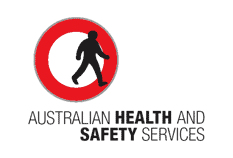Author: AHSS
Businesses and Business Groups
- ABL State Chamber www.australianbusiness.com.au
- Canberra Business Council www.canberrabusinesscouncil.com.au
- Viner Group International www.vgi.com.au
Commonwealth Regulators
- Comcare www.comcare.gov.au
- Federal Safety Commission www.fsc.gov.au
- Australian Safety and Compensation Commission www.ascc.gov.au
WorkCover Regulatory and Advisory Bodies
- State and Territory OH&S Regulators
- Commonwealth Regulators
- Businesses and Business Groups
In the ACT Budget last year a total of $400,000 was set aside to undertake a complete review of the ACT Workers Compensation Scheme.
Terms of Reference were established by the Workers Compensation Advisory Committee and the OHS Council and tenders were called in November 2006.
Australian Health and Safety Services in partnership with the Canberra Office of national law firm Dibbs Abbott Stillman and Melbourne based actuarial firm Cumpston Sarjeant successfully tendered for this review and signed a contract with Chief Minister’s Department in late January.
The review will take place over the coming 5 months and as a starting point an issues paper has been developed inviting submissions and discussion from interest groups and individuals throughout the ACT. (See Downloads Page)
This is a critical issue for businesses in the ACT as workers compensation premiums continue to rise and compared to other states and territories place ACT based companies at a significant disadvantage.
Reforms introduced in 2002 do not appear to be having the desired outcomes to the extent predicted and performance of the ACT workers compensation scheme appears to be suffering as a result.
In line with recommendations made in the 2005 Productivity Commission’s review of workers compensation and occupational health and safety, the Commonwealth Government have introduced legislation that would remove cover for injuries received during journeys to and from work and during authorised recess breaks (lunchtimes).
It is argued that as the employer has little or no control over the circumstances under which the employee travels to and from work and cannot direct the actions and activities of employees during lunchtimes then they should not be liable for any injuries that might be suffered.
A number of states and territories have already introduced these provisions over recent years and whilst there is wide spread support generally from employers there is also strong opposition to the changes from unions and other interest groups claiming that the journey is only undertaken because of work and therefore should be covered.
Other changes proposed will see the connection with work to justify a compensation claim raised from ‘Material’ to ‘Significant’, which on the surface appears to be a bit of semantics but underneath will make it much tougher to claim injury or illness, particularly in relation to stress or psychological claims.
This is an issue over which there will be much debate in coming months.
One of the greatest complaints of businesses that operate across state and territory borders is the complexity of differing requirements for workers compensation and Occupational Health and Safety.
The Federal Government have used pressure from many of the large organisations that fit into this situation to allow more companies to opt into the Commonwealth’s workers compensation scheme (Comcare) as a self insurer as a means of escaping this confusion. At the same time, the Commonwealth and passed amendments to legislation to allow businesses that successfully make this change to be covered by the Commonwealth’s OHS Legislation, thus completely extricating them from compliance with differing legislative controls from one state or territory to the next.
To combat this potential drain of large business from the state and territory based workers compensation schemes and occupational health and safety regimes, the state and territory governments have formed a group (without the Commonwealth’s involvement) that is looking at and moving towards making some of the basic provisions of both workers compensation and occupational health and safety the same no matter what the location.
This appears to be squarely aimed at negating the attraction of the Commonwealth’s ‘one stop shop’ approach and keep businesses with the state and territory frameworks.
